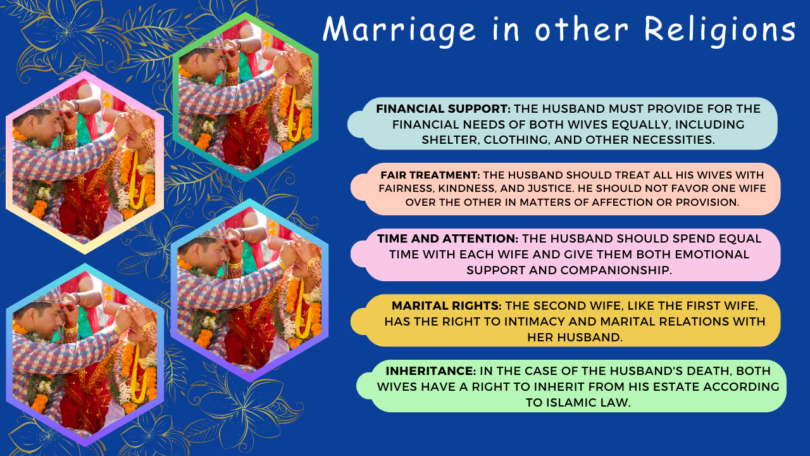Also Check:
Marriage Proposals in Islamabad
Zaroorat Rishta Faisalabad
Contect numbers for Marriage proposals
free Rishty in Lahore
online Marriage proposals
Rishty in Multan
Introduction to Getting Marriage in other religions
An interfaith marriage is one in which partners choose to get married despite having different religious origins. Islam views marriage as a legal contract that is also guided by the teachings of the Quran and the Prophet Muhammad (peace be upon him).
Punishment for Getting Marriage in other religions:
Marriage to a non-Muslim can result in punishment in specific areas under Islamic law. This might involve paying penalties, going to jail, or becoming socially outcast. Muslim women’s ability to marry non-Muslim males is frequently prohibited under Islamic law. There may still be societal repercussions even when Muslim men marry women of other religions. Before marrying someone of a different faith, it’s crucial to understand the laws and customs of the area to avoid any potential issues.
is it Haram to marry a non Muslim man?
Can Muslims marry a Christian in the Quran:
Islamic Perspective on Interfaith Marriage
Islam lays a strong focus on religion and the value of preserving one’s religious identity. Hadiths and passages from the Quran offer wisdom on a variety of life topics, including marriage. Islam recognizes the existence of interfaith partnerships and offers rules for them, even though it promotes marriage inside the religion.
Marriage in Other Religions
Every religion in the world has its own customs and rites related to marriage. Every religion, including Christianity and Hinduism, has distinctive customs that represent the joining of two people.
Interfaith Marriage in Islam
The word used in Islam to refer to adherents of monotheistic religions such as Judaism and Christianity is Ahl al-Kitab, or “People of the Book.” According to Islamic beliefs, Muslim males are permitted, under certain conditions, to marry women from the People of the Book, while Muslim women are encouraged to marry inside their religion.
Approach and Considerations for Interfaith Marriage
Navigating interfaith partnerships requires understanding and communication. Respecting one other’s religious practices and beliefs while upholding their own is crucial for a healthy relationship. An interfaith marriage can only succeed if there is open communication and respect between the partners.
Legal and Social Aspects
Couples of different religions may face social and legal obstacles in addition to religious ones. The criteria for recording interfaith marriages may vary depending on the nation and its legal system. Furthermore, it is important to take into account social acceptance as well as community and family support.
Common Misconceptions
Interfaith marriage in Islam is commonly misunderstood, with misconceptions regarding its legitimacy and permissibility. It’s critical to dispel these myths and inform people of the direction that Islamic teachings offer in terms of interfaith harmony.
Cultural Influences
Marriages across different religions can be greatly impacted by cultural customs and rituals. It can be difficult for couples to strike a balance between cultural conventions and religious responsibilities; they must learn to negotiate cultural differences by recognizing and making concessions.
Counseling and Support
Seeking consultation from religious experts and advisors can provide interfaith couples important understanding and assistance. Couples can deepen their relationship and cultivate respect for one another with the use of counseling programs designed specifically to handle the special difficulties interfaith couples experience.
Success Stories
There are many examples of successful interfaith marriages in Islam, despite the difficulties. These narratives provide motivation for couples in comparable situations by emphasizing the value of love, compassion, and flexibility in creating a happy and fulfilling union.
Challenges and Solutions
Different religious traditions, cultural norms, and social pressures are just a few of the difficulties that interfaith couples may face. However, many challenges may be addressed and relationships strengthened with persistence, communication, and a willingness to compromise.
Community Engagement
Supporting interfaith marriages and promoting inclusion are important roles that communities play. Interfaith marriages may be honored and valued in communities when they foster communication, comprehension, and acceptance.









Leave a Comment